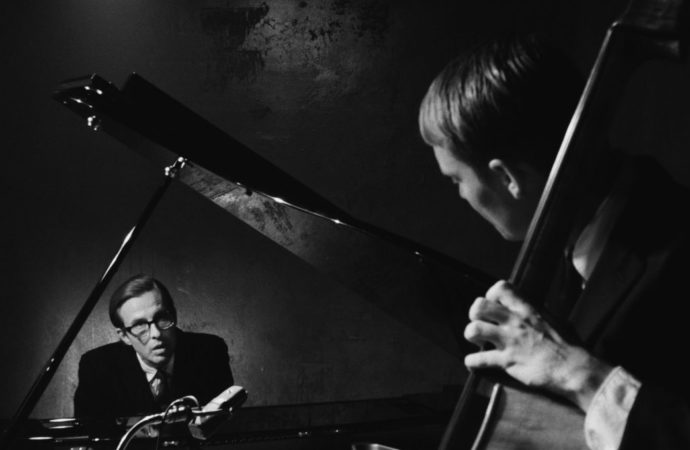Johnny Cash and June Carter, who knew a thing or two about love that burns, used to say that love is a burning thing and that bound by wild desire, I fell into a ring of fire. Well, the main character in The English Patient, who is neither English nor patient, and goes by the bombastic name of Laszlo de Almasy, has literally been consumed by the fire of love.
I begin with a song, because I know that its protagonist was a great fan of them, he couldn’t stop humming them, and because to start talking about the Bosphorus of Almasy would have been too obvious. Don’t you know what the Bosphorus of Almasy is? Then you should not continue reading this piece, but first watch (or re-watch) The English Patient, although if you are still dying to know, you should know that the Bosphorus of Almasy cannot be found on any map, nor territory, nor country, although in this film there are many of them, but it is located in the neck of the loved one and received the vulgar name of suprasternal cleavage b. of TEP., or what is the same before The English Patient.
This film was released on 15 November 1996, 25 years ago now, and was an immediate success with critics and audiences, winning nine Oscars, including best film and director, but I think that so many awards killed it (although I love it, I still think Fargo and the Coens deserved the main awards at that edition). It generated a kind of resentment against the film that has meant that it has been forgotten or, worse still, named in the same breath as such sights as Shakepeare in Love.
But after revisiting it in order to write this article, I realized that the film still stands the test of time marvelously; it is not Casablanca, obviously, but it can look Doctor Zhivago or Out of Africa, two of the films with which it can be most compared, in the eye without an inferiority complex. Obviously, The English Patient is not the work of a master, as Lean was, but it is the work of a careful craftsman who knows his craft to perfection, Anthony Minghella, someone who painstakingly paints each trace, completely in love with his work, like those pictorial strokes with which the film opens.
There may have been equally lush and epic romantic films since The English Patient, but its passion, its personal adaptation of Michael Ondaatje‘s novel (undoubtedly the best of Minghella’s career), the performances of a cast in absolute top form (Ralph Fiennes as De Almasy, Kristin Scott Thomas as Katherine, Juliette Binoche as Nurse Hana, Naveen Andrews as Kip and Willem Dafoe as Caravaggio, undoubtedly the most poorly cast character), spectacular cinematography by John Seale (the same man who returned to the desert in the spectacular Mad Max: Fury Road) or its carefully crafted soundtrack, continue to place it as the great romantic film of its time, above Titanic, as Gone with the Wind or the aforementioned Doctor Zhivago were before it.
But what separates it from the rest is not its magnificent technical aspects, but how well it knows how to combine the epic with the intimate, the romantic with the restrained, without ever falling into the silliest sentimentality. The moment Kristin Scott Thomas appears in Fiennes’ room ready to give herself to him, the first thing she does is slap him in the face, before she kisses him. At all times they know that what they are doing is wrong, and possibly also that they are both absolute egotists who only care about themselves. That’s why their love hurts, because for the first time, they have someone to care about, someone to possess and be possessed by. Clearly, the relationship between Binoche and Andrews is set up to balance this one and its lightness makes the tragic nature of the former more bearable, but it doesn’t quite become stomach-churning and is closed not with the usual wedding bells but with a celebrated Before Sunrise-like suspense point…
But, clearly, the heart of the film is in the relationship between Almasy and Katherine, showing us the transformative power of love, how everything changes when it touches and embraces you, he starts out a selfish prick, answering the question of what he hates most with a dry Possession, feeling that someone owns me. When you leave you must forget me. But then he begins to betray himself, starts planting flags on the beloved body, jealousy consumes him and he cannot bear the sight of a foreign hand touching his beloved Almansy Bosphorus, not realising that the dangerous game of love and possession is played by everyone, even a buffoonish husband to whom you have barely given a second’s thought. Wars fought for love are as impudent, barbaric and unjust as all others.
The World War II setting is no accident, though unlike Lean, Minghella does not exploit it for some epic scenes, and that is that by the time the nations fight, the main characters realise that they are stateless, like all those who are in love with more than a waving handkerchief or a piece of land. Neither Laszlo nor Katherine particularly drinks alcohol in this film, but either would agree with Bogart’s answer to the question What is your nationality? I am drunk, even if in their case they are drunk with love and incapable of the ultimate sacrifice or of initiating “a great friendship” after burning in their love ring. Although, for once in history, World War II was one of the few wars where it was clear, not so much where the good guys were, but, of course, which side the bad guys were on.
Wars fought for love are just as shameless, barbaric and unfair as all other wars.
But The English Patient stars a man whose actions have caused his best friend to commit suicide and another to be cruelly tortured. It used to be possible to make a blockbuster like this and spend millions of dollars on a film about love, many of it flawed and selfish, like this film shows us, in which the protagonist, not the hero, so literally forgets the world around him, beyond the love he feels for a woman, that he is capable of selling himself to the Nazis themselves. Can you imagine a superhero movie in which Iron Man said Fuck the world, gave him whatever Thanos needed, and he went off to mourn his dead beloved and didn’t give a damn (like Rhett Buttler) about anything else?
For in The English Patient the two protagonists are deeply flawed and selfish beings, quite the opposite of the kind-hearted Hana (seeking to heal her inner wounds by healing the outer wounds of others) or the heroic Kip, perhaps that is why their love burns hotter and more ardent, because there is nothing outside of it, no homeland, no God, no land, no freedom, no nothing. Just a huge ball of fire that burns like the desert sun.









No one has posted any comments yet. Be the first person!